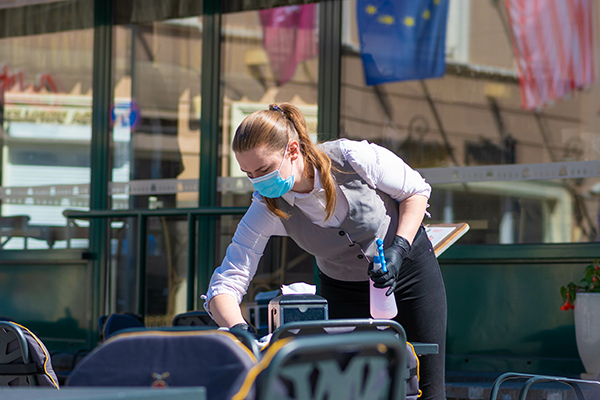Active Managerial Control – Could it Be the Missing Link in Your Food Safety Plan?
In October, I discussed mitigating risk in the overall food system and the importance of attempting to prevent foodborne illness, rather than just reacting to it, a concept we call active managerial control. This was highlighted again over the last month with the onion outbreak that I discussed in my blog earlier in the month. Being alert to recall notifications and reacting quickly is key to preventing the service of an item known to cause illness.
Active managerial control is a process by which a foodservice managers can begin to prevent foodborne illnesses and can take many forms. Previously, we have defined what it is and how you might begin to implement active managerial control within your operation, but it has been a few years since we’ve really discussed it and it is one of those food safety items that is so important it warrants further review.
With the pressures facing foodservice operators today with lack of human resources and the troubled supply chain, it is easy to forget about other important aspects of your foodservice that may not immediately impact day-to-day operations or bottom line, like food safety. But it is critical, nonetheless.
Ultimately, a management team practicing active managerial control can help to transform an organization from a reactive mindset to a proactive approach to food safety…
Ultimately, a management team practicing active managerial control can help to transform an organization from a reactive mindset to a proactive approach to food safety and can incorporate mindful changes in daily operations that help to improve the safety of food served. A Hazard Analysis and Critical Points (HACCP) system is one way to achieve active managerial control, but it is not the only way.
If the thought of a full-on HACCP system seems daunting or overwhelming, you are not alone. But don’t let that fear impede you from starting to take small steps. In a class we conduct every summer for school foodservice operations through our Center for Food Safety in Child Nutrition Programs, I always talk about focusing on the one item you want to change, that one keystone or linchpin behavior that can help transfer all other behaviors within your organization. That specific behavior is different in each operation. Is it handwashing? Ensuring proper temperature control? Logging cooling and freezer temperatures on a routine basis? Whatever the behavior you want to change is, focus on that one. Don’t try to change everything at once. Change is difficult and employees can resist if you try to change to much at one time.
What is the linchpin behavior you’d like to address in your operation? Send me what you could consider it to be, I’d love to hear them! Check back next month when we will dig into some of the keys to changing behavior within your organization.
Be sure to join us later this week for our last SafeBites webinar of 2021! We will be talking about Practicing Good Agriculture: A Primer for Foodservice Operations. I hope to see you there.
If you have ideas for any webinar topics for 2022, please let me know. I would love to hear them. Risk Nothing.










